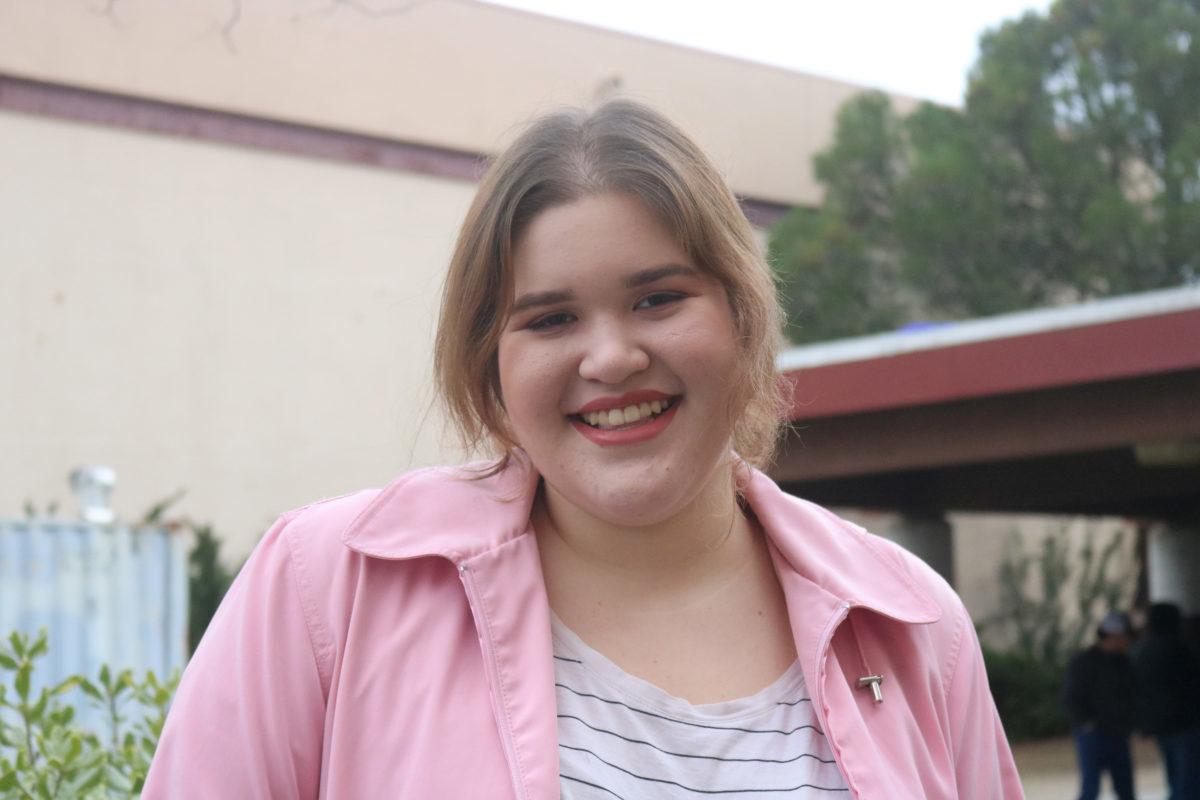Teens reveal what they require for positivity, confidence, and acceptance
The teenage minds need many things: a positive environment, education, comfort, acceptance, and much more. Oftentimes, teens are told not by their peers, but by adults what their minds need. The people interviewed below are students who have their own understanding of what their and other’s minds need. They have shared their findings and opinions, what they receive and are deprived of, and how they control or obtain their minds’ needs.
What does the teenage mind need?
Sarah: A positive environment to make focusing on things much easier
Sophia: Reassurance from friends, family, and even teachers to boost their confidence in their work
Elijah: A big thing that the teenage mind needs is acceptance. I think that our culture and society definitely puts a lot of pressure and strain on teenagers as far as like what they look like, what they should be doing, you know and how they are dressed. And so you know like having a good friend group that accepts you and having a good home life for example and having accepting parents and stuff, just to let teenagers express themselves: I think that’s the big thing that it’s kind of lacking and I think it should be more focused on.Remove featured image
Zach: The teenage mind needs, among other things, space to change and grow positively. There are many ways that this necessity can be met, including recreation, sleep, nutrition, and education.
What does your mind specifically need?
Sarah: My mind needs a positive environment as well as stress relief
Sophia: More sociable life aspects in order to keep me happy
Elijah: Intellectual stimulation. I would say, definitely. I love having conversations about things like this and stuff but I think like not a lot of people can get down on a basis like this so like just being able to articulate my thoughts and just being able to convey this, it’s just like its really good. Definitely.
Zach: I personally have found that sleep has the biggest impact on my life when it comes to success or failure in academics, sports, etc. Exercise also is a major factor for me and I find that my mental and physical health are closely related.
Why do you believe your mind / teenage minds need those specific things?
Sarah: To deal with all the things life throws at us
Sophia: They often doubt themselves. The reassuring messages from those who care can help them with confidence and also motivation to do more.
Elijah: Teenage minds are still involving, there still progressing and you know we still are trying to understand who we are as people and what we stand for and if you have an accepting environment to do that then I just feel like it will be better and your views and stuff will not be as strayed or like as swayed as much as like our culture and stuff like that. (himself) I’m a very thoughtful person, I think a lot and so I like to grasp abstract concepts and things like that and so with having intellectual stimulation it’s just like having a good friend to listen to you. Just like having that person to vent and just shoot ideas back and forth. It’s just comforting I guess.
Zach: The brain continues to grow and adapt during our teenage years and it can be a pivotal time for making social and academic connections. Such positive changes must be fostered by these basic needs.
Who and what supplies these needs?
Sarah: My planner book really keeps me on track and it reduces the stress a lot
Sophia: Fellow friends and other important members of their lives should try to reach out to teens more and compliment them
Elijah: Definitely my best friend Jorge Rodriguez. He’s a senior as well and I don’t know, I’ve known him since 6th grade and he’s just very philosophical as well and he’s always there to support me in anything I want to do. Him and Alex Jenks, another senior as well, that’s like my brother and sister and they are just very supportive of me. They just have the ability to get the concepts I’m talking about and some of the concepts that we like shoot back and forth and like I’m in PEER and we like talk about really controversial things and get like really touchy feely about our emotions and stuff and they have the ability to see both sides and they have the ability to either like keep the conversation going and like stimulate it and just like that.
Zach: These needs are supplied primarily by our parents, teachers, and peers. Each play a different but equally important role in our cerebral development.
Are these needs satisfied at school or are they deprived?
Sophia: More often than not these needs are deprived at school. Teens are often put down from loads of work that they take negativity on themselves.
Elijah: For like the general public, I’d say they are generally deprived. Because if you really don’t have a good friend group like I do, like I’m very blessed to have the people surrounding me in my life but I feel like if you are another teenager that comes from a different background and you go to the high school and let’s say you have a thinking mind like me and you want to express all those ideas and things, i feel like the general public doesn’t like facilitate that it does not accept that as much as just like being like joking around and like with humor and high schoolers and the teenage mind. I feel like it’s not welcoming or accepting of that you know.
Zach: For the most part, I believe these needs are met at school thanks to many of our teachers. However, each individual has their own learning capacity and preferences, so it is quite possible that school doesn’t always meet these basic needs for everyone.
How are they satisfied or deprived at home?
Sophia: Depending on relationships with their family, teens are either satisfied or deprived from the familial care they need.
Elijah: They are supplied heavily. I live with my grandma and her girlfriend and they’ve raised me ever since I was little and so like I don’t have the traditional “mom” and “dad” and they definitely like from the youngest of age I can remember they always said “being you is enough for us” and they never tried to push me towards anything I didn’t want to do. They always supported me and they are always willing to talk to me if I ever need to talk about anything and they are just like very comforting and it’s just like good to have that because like everybody is like “I wish the mom and dad” and that’s just like the Golden Family but I don’t know, I feel like I have the Golden Family, I mean I’ve got my sister, I’ve got my grandma, I have Susu, that’s what we call her, and they are just very loving and I love that.
Zach: My personal home life is a huge blessing, and I am very thankful for the love and support that I get there. I’d definitely say that the needs of my brain when it comes to education, recreation, and health are met. However, not everyone is as fortunate and many face difficulties with learning and adapting successfully at home, which could be due to financial problems, domestic abuse, etc.
How do you wish school educated your mind better?
Sophia: I wish school offered more opportunities to educate and be social at the same time. Being able to connect to similar studies can help teen minds become more engaged and positive.
Elijah: Well I feel like some subjects we talk about in PEER Communications, I feel like that shouldn’t only be taught in like PEER, I feel like some things should be taught, like getting in touch with yourself, like taking a personality test, just like getting to be more conscious and aware of who you are as person. That should be like supported in every classroom whether it be Math, English, Government. I mean, that should be a big focal point because at the end of the day we are all people, and we all interact with people and we are very social and I feel like if we can get on a deeper level of like recognition, I feel like we will be able to just like, be happier people in the end overall.
Zach: I wish that school could be tailored more toward the individual, rather than just throwing everyone onto the same track no matter their learning preferences and abilities. Not everyone’s brain finds success in the same ways. Inevitably, in a class where everyone is taught the same, some will thrive and others will fall short.
How does the mind cope without these needs?
Sophia: People tend to isolate themselves when they cannot connect to others. Teens will cope by isolation, which can bring more negative effects to the mind.
Elijah: Everybody copes with that in there own different way, like I said we are all individuals, we are all unique and so for some people, sadly, it might be resorting to drugs. If you don’t have that export to to say what’s on your mind, you might feel like drugs are the only thing for you when you need it like alcohol or teenage things that are really dumb that we do, but we do them anyways because we are teenagers.
Zach: Without the basic needs of sleep, recreation, nutrition, and education, the teenage brain is forced to make due without the resources that supplement its growth. When one is extremely tired or malnourished, learning becomes a near impossible task and he or she is certainly not able to reach their academic potential.
Realistically, could all needs be fulfilled? Why or why not?
Sarah: Well it depends on the needs of each individual person, but most likely it would be very difficult to fulfill every need.
Sophia: I believe that all needs cannot be fulfilled. We all have different needs to have a successful life and it’s genuinely hard to acquire all of them.
Elijah: Realistically no, I don’t think all needs could be fulfilled I think we as humans we are always going to be wanting more. I think that that’s just the nature that we are like molded into, you know like: you have a nice house, you want a better one, you have a nice car you want more money, more money. I feel like we are always going to want more but relatively, I’ve seen people with like nothing, but they are so content and happy with life, and so in a way they can all be fulfilled and in a way no, they can’t be fulfilled.
Zach: It should be a goal for parents, students, and teachers to provide these needs to the best of their abilities. Not only is it important that teens have a strong support system and educational opportunity, for it is equally important that they make use of these resources and strive for success. Providing all of these needs may not be possible for everyone, but the pursuit should be an obligation.
Compared to decades ago, how have teenage needs changed?
Sarah: Now, there are more needs that need to fulfilled when being a teenager! 2
Sophia: Technology has changed the world we live in and what teenagers want for themselves. Compared to decades past, we now seem to actually crave technology and we desperately want to connect to others through all of the social opportunities there now are.
Elijah: I feel like decades ago teenagers were very more like not worried about the future and living in the now and with that comes doing more stupid things and partying a lot and like drinking and all the drugs and all the stuff like that. And in a sense they were much like happier just more carefree, I mean back then, our parents ages, you probably didn’t have very many people coming out about depression, or like anxiety and things like that so in a sense we have become more in touch with ourselves and like more expressive as like teenagers do.
Zach: Over the last few decades, the world has become a lot more competitive for high school graduates looking for work. While in the 1950s and 60s a high school diploma could land you a decent living wage to support a family, nowadays people are forced to achieve greater academic excellence to find such success. As a result, teens these days often need a greater emphasis placed on their education and plans after high school, as well as a conducive learning environment to learn and grow.
Where are these needs most abundant? Where are they most often fulfilled?
Sarah: (fulfilled) At the beach or a place of calmness, a positive environment and stress relief is most abundant!
Sophia: (needs) Needs for certain existential crises are often abundant. Teenagers so desperately have questions that they cannot obtain the answers to and spend great portions of life in distress. (fulfilled) Teenagers are fulfilled with the education since they spend so much time learning.
Elijah: It comes from people just being a good listener you know, selflessness, thats like a big thing that I feel like we don’t have in our society as much as we should. Selflessness is like just caring for other people and putting other people’s needs before you first, just to a certain extent. At the end of the day you have to take care of yourself. But I feel like if you can help more people on the side and put your ego like to the back, just for a little bit, just to help other people I feel like that’s where the sources of the need come from.
Just being surrounded by loved ones that actually care about you, being around family that actually cares about you, and actually wants to know how you are doing, genuinely and not just saying “how are you?” “good, how are you?” you know, the run of the mill stuff, I feel like just having good friends, good peers around you, good people, surrounding yourself with people that actually care,yea.
How do you think that these people without a good family get there source of needs?
Well if you don’t get it from your family home, for many people, highschool is like a safe haven, I mean people having their best friends that they get to see 5 times a week, I’m pretty sure that where they’d get it from. They can’t get it from there parents or family.
Zach: I believe that as teens we rely primarily on the needs of our brain at school, because for most people it is the most mentally taxing challenge we face. However, many find that these needs are more often met not in the classroom, but rather at home with family or in a more social environment out with friends.







